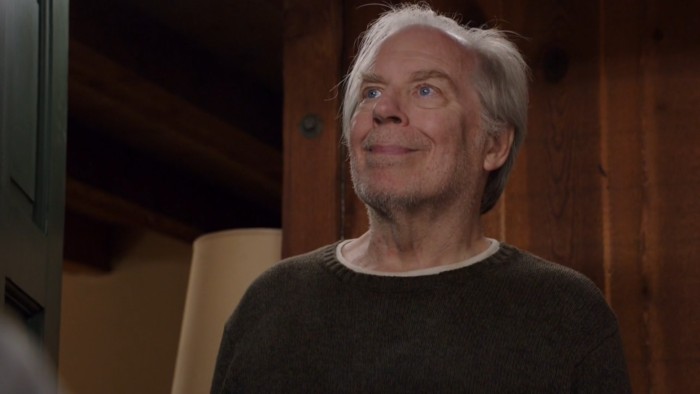Join us Wednesday, February 16th at 4:30pm in the Strange Lounge in Main hall for the next installment of the Strange Thing!

In this episode, Michael and Janet visit Doug Forcett, played by Michael McKean. Doug is described in the series as the first and only human being to discover the point system for getting into the Good Place. They are visiting him to determine how our main protagonists should act in order to get into the Good Place. I’d like to explore a couple of general directions of inquiry, though I would be interested to hear about any other issues that stuck out to you as well.
One question I had is: Does Doug know that the system to get into the Good Place is what it is? He is described as having been the only human begin to have ‘discovered’ it. But he formed the belief while high in the 70s, seemingly out of thin air. And they don’t mention that he ever got corroboration. But without such corroboration, it is not clear to me where his motivation comes from to abide by the system as exactly as he does. Indeed, knowing that one has ingested a mind-altering drug is a classic sort of circumstance often used to provide us with reason to doubt the beliefs we form during that time, however true they may seem to us at that time. So not only might Doug not know about the system, he may actually have reason to doubt that the system is the way he thinks it is.
Putting issues concerning Doug’s epistemic position aside, Doug is described as a happiness (or utility) pump, since, in an effort to maximize his chances of getting into the Good Place, he does everything he can to make others happy to accrue as many points as possible. This involves him living in such a way that he leaves as small a carbon footprint as possible, and participates in the morally repugnant supply chains of modern society as little as possible. It also involves him doing whatever the local teen sociopath (or anyone) tells him to do. The idea of a happiness pump has been raised as a criticism of utilitarianism, the view that what is right is what maximizes overall happiness. I thought it would be worth discussing why a happiness pump poses a problem for utilitarianism, and whether it is an effective criticism of the view. Of course I’d also like to discuss “story-internal” questions like, “Is Doug’s way of life enough to get him into the Good Place, especially given that his motivations might be corrupted due to his potential knowledge of the system for getting in?”.
